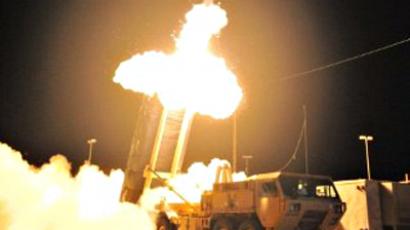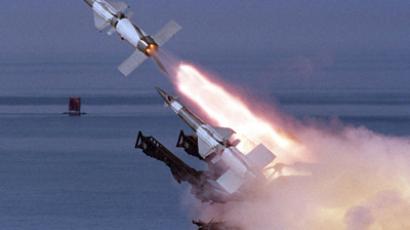US, NATO and missile shield: Searching for legitimacy
US missile defense in Europe is a legacy of the Cold War with dubious feasibility, acknowledges John Feffer of Foreign Policy in Focus think tank. The ABM shield is an unnecessary provocation for Russia, and one with an impracticable price tag.
Since neither the US nor Europe appear to be capable of financing the ABM project, America might be better off seeking a diplomatic solution for Iran’s nuclear and missile programs. The co-director of the American think tank also believes that it is high time for NATO to find some kind of legitimacy 20 years after the end of the Cold War.John Feffer spoke to RT about the situation.RT: What strategic benefits does the anti-missile system have to the US and Europe?John Feffer: It’s tough to talk about capabilities when it comes to missile defense, because as a system it has not been the most successful system that we put forward from the military point of view. It consistently fails in terms of its tests, its costs overruns. There have been several recent reports from various academic institutions calling into question the entire system.Nevertheless, several European countries… committed to at least have some role to play in this defense system. NATO is scrambling to kind of find the money for this because it is going to be an extraordinarily expensive system and the Europeans have only ponied up a small portion of that. At the time the US is desperately looking for ways to cut as much as $500 billion in the next 10 years it is going to be tough to find support both in the US and in Europe for a much more robust missile defense system.NATO is trying to put the best possible face on what is still a contentious issue. And that is not even taking into account Russia’s opposition to missile defense.RT: There are complaints that this system does not even protect the US – it rather protects Europe.JF: Yes. There are a lot of systems that we have in place that have dubious feasibility and value. Just look at the tactical nuclear weapons we maintain still in Europe. If you look at the range that those nuclear weapons would strike – they only would strike within Europe itself. They might barely touch [Russian exclave in Europe] Kaliningrad – and that’s it! Why do we keep them when they have no military utility whatsoever? We keep them for outdated Cold War reasons.Why do we maintain a missile defense system? In part because of the Cold War legacy – we started this program in the Cold War. We still have this idea it will protect the US and much of Europe from a much larger missile threat.But the specific missile threat is Iran and now Iran does not have a capability to reach Europe in any reasonable or sensible way. So the missile defense system is of dubious value right now. That is why it is difficult to get buy-in from our European allies. They have a lot of things they have to spend money on and to think decades down the line, when such a system could be feasible – maybe – and usable – maybe, and useful – maybe – is a big commitment.RT:And Russia opposes the system.JF: Russia was invited to participate. If I were Russia – I would say “Look, I don’t want to spend my money on this.” But that is another question.RT:How would that affect the relation between Russia, the EU and the US in the future?JF: I think that missile defense is an unnecessary provocation show for Russia – as NATO’s expansion has been in the past. Of course NATO has reached out to Russia to talk and have agreements, but for the most part this has been seen by Russia as kind of superficial. Russia wants to be taken seriously in any kind of security discussions across Eurasia…It would be useful if NATO and the US to continue nuclear negotiations with Iran and expand it to missile questions as well and deal the missile issue that way and not spend so much money on missile defense of a dubious feasibility to begin with. And to start to address the range of issues the US and NATO have with Russia, about a variety of security threats which seriously affect the entire world.NATO is an institution that has to find some kind of legitimacy 20 years after the end of the Cold War. It developed a kind of interim reason for being, to go after “rogue” states, to deal with crisis in former Yugoslavia, to deal with Libya more recently, potentially to deal with Syria, but that really goes beyond what NATO was designed to do – which was collective security for Europe. The recent NATO summit was an attempt to find some kind of rational to keep NATO going, to keep a reason to spend so much money on this alliance and I don’t think they have found one.













